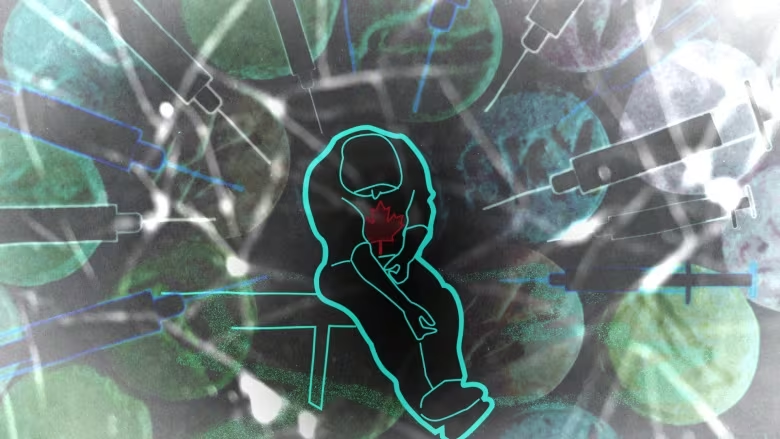
Drug use among newcomers to Canada is flying under the radar. (Duk Han Lee/CBC News Graphics)
Ali, a young international student from Turkey, found himself grappling with loneliness and thoughts of suicide shortly after arriving in Canada. Introduced to methamphetamine within just 17 days of his arrival in Saskatoon in 2022, Ali, now 23, reflects on his struggle with crystal meth use as he works towards recovery. However, he highlights the dearth of mental health services tailored to his language and cultural background as a significant barrier in his journey.
Similarly, Raza, a 32-year-old Syrian refugee residing in Saskatoon, shares a parallel experience. He navigates odd jobs to support his family overseas but faces language barriers and social isolation, which he describes using the Arabic term "Wahda." Amidst these challenges, Raza turns to crystal meth as a temporary reprieve.
To protect their privacy due to the stigma surrounding drug use and mental health issues in their communities, CBC News has opted not to disclose Ali and Raza's full names.
The gravity of their experiences reflects a broader trend in Saskatchewan, where 484 confirmed and suspected drug toxicity deaths occurred in 2023. However, the true extent of the crisis among newcomers remains largely unquantified, highlighting the urgent need for enhanced data collection and targeted interventions.
Truly Alive Youth and Family Foundation, an organization serving diverse communities in Saskatoon, notes a notable rise in substance use among newcomers, particularly international students. Executive Director Anthony Olusola attributes this surge to the compounded stressors faced by international students, including pre-existing trauma and financial pressures exacerbated by rising inflation and tuition fees.
Sultan Ali Sadat, from the Saskatoon Open Door Society, emphasizes the struggle of young immigrants adjusting to life in Canada, often burdened by familial expectations and unrecognized qualifications. Many turn to substances as a coping mechanism, facing significant stigma and shame within their communities.
Geoffrey Maina, an associate professor at the University of Saskatchewan, identifies stressors inherent in the immigration process, settlement challenges, and drug accessibility as key factors driving substance use among newcomers. Despite anecdotal evidence and community reports, comprehensive data on this issue remains elusive, hindering effective policy responses.
Calls for culturally-sensitive care echo across community-based organizations, underscoring the importance of providing support tailored to diverse cultural backgrounds. However, limited resources and capacity strain these services, exacerbating gaps in access to care.
As Saskatchewan anticipates significant population growth driven by immigration, experts emphasize the need for proactive measures to address substance use among newcomers. They advocate for comprehensive data collection, culturally-responsive interventions, and investments in preventative initiatives to mitigate future crises.
In the face of escalating challenges, stakeholders across Saskatchewan underscore the urgency of acknowledging and addressing the complex interplay of factors contributing to substance use among newcomers. They emphasize the pivotal role of evidence-based interventions in fostering inclusive, supportive communities where individuals can thrive.















